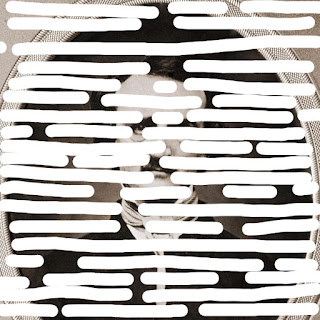The Notebooking Daily 2020 Writing Series is a daily writing exercises for both prose writers and poets to keep your creative mind stretched and ready to go—fresh for your other writing endeavors. The writing prompts take the impetus—that initial crystal of creation—out of your hands (for the most part) and changes your writing creation into creative problem solving. Instead of being preoccupied with the question "What do I write" you are instead pondering "How do I make this work?" And in the process you are producing new writing.
These exercises are not meant to be a standard writing session. They are meant to be productive and to keep your brain thinking about using language to solve simple or complex problems. The worst thing you can do is sit there inactive. It's like taking a 5 minute breather in the middle of a spin class—the point is to push, to produce something, however imperfect. If you don't overthink them, you will be able to complete all of the exercises in under 30 minutes.
#340Erasing EAP "Berenice" 1
For poetry do an erasure or black-out poem from the following (short opening) selection of Edgar Allen Poe's 1835 short story "Berenice".
Edgar Allen Poe is considered by some to be the writer that solidified the short story genre as, well, a genre. Not the first writer of short stories, or even popular short stories, but he wrote enough of them that with the stories of Nathaniel Hawthorne, Charles Dickens, Irving Washington and others, critics were finally like—fine. Short stories can be a thing.
An Erasure/Blackout is really simple: you take the given text and remove many words to make it your own new piece. One way to go about the erasure that I like to do is to copy the text and paste it twice into your document before you start erasing or blacking out (in MS Word set the text background color to black), that way if you get further into the erasure and decide you want a somewhat different tone or direction, it's easy to go to the unaltered version and make the erasure/black-out piece smoother. Another tip is to look for recurring words, or themes.
In this example there are multiple repetitions, "in the ___" and "wonderful" being a couple. This is a relatively short section, so it will likely be a pretty short poem/section, so keep that in mind while composing.
If you insist on fiction, write a piece with one of these six titles taken from this section:
- Misery is Manifold
- Gloomy, Gray
- In the Chiseling
- A Memory Like a Shadow
- Youth in Reverie
- To Warrant the Belief
Erasure Selection:
from "Berenice"
Dicebant mihi sodales, si sepulchrum amicae visitarem,
curas meas aliquantulum fore levatas.
-Ebn Zaiat.
Misery is manifold. The wretchedness of earth is multiform. Overreaching the wide horizon as the rainbow, its hues are as various as the hues of that arch, —as distinct too, yet as intimately blended. Overreaching the wide horizon as the rainbow! How is it that from beauty I have derived a type of unloveliness? —from the covenant of peace a simile of sorrow? But as, in ethics, evil is a consequence of good, so, in fact, out of joy is sorrow born. Either the memory of past bliss is the anguish of to-day, or the agonies which are have their origin in the ecstasies which might have been.
My baptismal name is Egaeus; that of my family I will not mention. Yet there are no towers in the land more time-honored than my gloomy, gray, hereditary halls. Our line has been called a race of visionaries; and in many striking particulars —in the character of the family mansion —in the frescos of the chief saloon —in the tapestries of the dormitories —in the chiselling of some buttresses in the armory —but more especially in the gallery of antique paintings —in the fashion of the library chamber —and, lastly, in the very peculiar nature of the library's contents, there is more than sufficient evidence to warrant the belief.
The recollections of my earliest years are connected with that chamber, and with its volumes —of which latter I will say no more. Here died my mother. Herein was I born. But it is mere idleness to say that I had not lived before —that the soul has no previous existence. You deny it? —let us not argue the matter. Convinced myself, I seek not to convince. There is, however, a remembrance of aerial forms —of spiritual and meaning eyes —of sounds, musical yet sad —a remembrance which will not be excluded; a memory like a shadow, vague, variable, indefinite, unsteady; and like a shadow, too, in the impossibility of my getting rid of it while the sunlight of my reason shall exist.
In that chamber was I born. Thus awaking from the long night of what seemed, but was not, nonentity, at once into the very regions of fairy-land —into a palace of imagination —into the wild dominions of monastic thought and erudition —it is not singular that I gazed around me with a startled and ardent eye —that I loitered away my boyhood in books, and dissipated my youth in reverie; but it is singular that as years rolled away, and the noon of manhood found me still in the mansion of my fathers —it is wonderful what stagnation there fell upon the springs of my life —wonderful how total an inversion took place in the character of my commonest thought. The realities of the world affected me as visions, and as visions only, while the wild ideas of the land of dreams became, in turn, —not the material of my every-day existence-but in very deed that existence utterly and solely in itself.
------------------------------------
If you'd like some background music to write to, try this 1972 album from Hungarian guitarist Gábor Szabó - "Small World".












